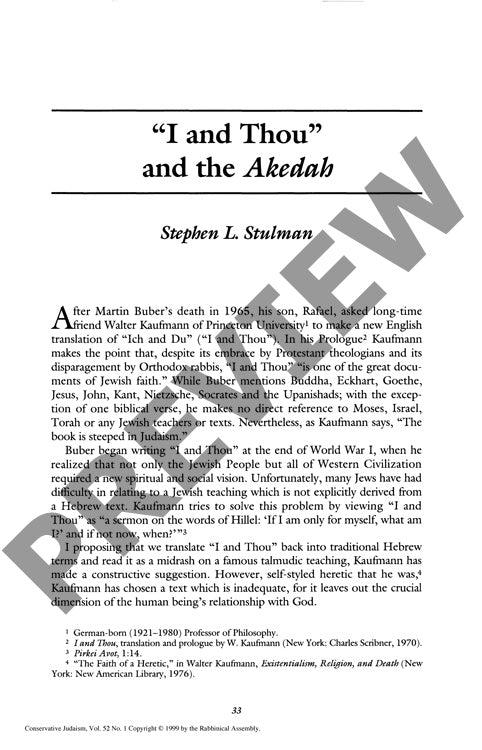I and Thou and the Akedah
Couldn't load pickup availability
Abraham's threefold declaration of "Hineni" (Here I am) in Genesis 22 reveals a profound truth that Martin Buber would later articulate in "I and Thou": authentic relationships with both God and humans spring from the same spiritual wellspring. While Walter Kaufmann suggested grounding Buber's philosophy in Hillel's teachings, the Akedah (Binding of Isaac) provides a more compelling biblical foundation. Through comparative textual analysis of Buber's framework, Kierkegaard's "Fear and Trembling," and traditional Jewish hermeneutics, this investigation uncovers how the Akedah narrative exemplifies Buber's central insights. Abraham's response demonstrates the unification of divine attributes - justice (Elohim) and mercy (Adonai) - resolving Kierkegaard's supposed tension between religious and ethical imperatives. Close reading of the Hebrew text and midrashic interpretation reveals the Akedah as a template for Buber's dialogical philosophy, where authentic relationship demands complete presence and responsibility to both divine and human others. The analysis suggests that "I and Thou" functions as an implicit midrash on the Akedah, establishing that genuine love of neighbor and love of God are inseparable aspects of a unified spiritual reality, thereby providing a distinctly Jewish theological foundation for Buber's universal philosophical insights.

More Information
-
Physical Description
-
Publication Information
Published 1999
ISBN
-
Publication Credits
Stephen Stulman

